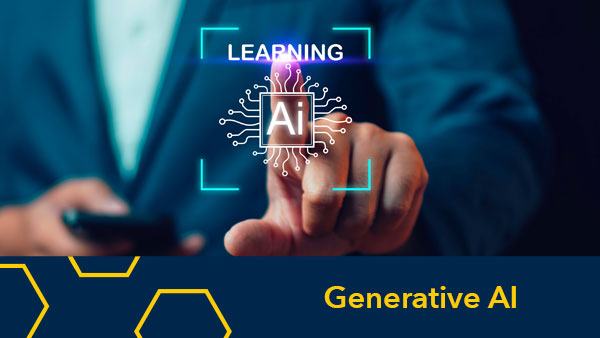Cait Holman, Associate Director for Research and Development
@chcholman

On February 14, 2019, we hosted the first ever Academic Innovation Data Showcase. We came up with this idea last fall as we were looking for ways to make the ongoing research here at Academic Innovation (and the opportunities to do new research with us) more accessible to the University of Michigan (U-M) community. By putting the focus on data we were able to create a space that allowed us to explore the connections between projects that might not otherwise be apparent– for instance, many of our tools share infrastructure, and so decisions for one may impact others; separately, much of our work is informed by concern for particularly important topics, like equity of access, mental health and wellness in learning environments, and student data privacy and ethics. With more than 90 attendees from across the university (and a few non-university visitors from other institutions!), we were thrilled to see such an array of perspectives take part in the event. We even saw the hashtag, #UMichData, trending on Twitter in the Detroit area during the event!

To kick things off, Dr. Gus Evrard, Arthur F. Thurnau Professor of Physics and Astronomy and innovator in residence at Academic Innovation, spoke about his longstanding efforts to make data accessible to stakeholders across the university, including the launch of Academic Reporting Tools 2.0 (ART 2.0)and the importance of establishing Problem Roulette to make exam preparation materials accessible. His talk highlighted the necessity for Academic Innovation, U-M Information and Technology Services (ITS), and the U-M schools and colleges to collaborate in building a better future.

Ben Hayward, Associate Director for Software Development and User Experience Design, described the problem-solving philosophy that the Academic Innovation software team brings to building learning technologies. His talk showcased the way that our data architecture is foundational to our ability to build personalized technologies as well as enable translational research agendas.

Dr. Rebecca Quintana shared how she and our colleagues on the learning experience design team have been using physical materials like beads to create “Course Composition Diagrams” that depict structural curriculum choices. These diagrams enable the team to reflect on the impact of the choices made across Academic Innovation’s Massive Open Online Course (MOOC) portfolio. You can read more about their award-winning work here.

Dr. Meghan Duffy, Professor of Ecology and Evolutionary Biology in the College of Literature, Science, and the Arts, and on sabbatical at Academic Innovation, described how she has been taking a data-focused lens on understanding student mental health at Michigan. With Counseling and Psychological Services (CAPS) reporting that 44% of undergraduates and 41% of graduate students say that mental health challenges have impacted their academics in a 4-week time period, there is a tremendous amount of work to be done in this space. Dr. Duffy is exploring how a short wellness survey might help instructors and students make sense of the challenges in play, and start to build skills around preventative mental healthcare.

Dr. Christopher Brooks, research faculty in the School of Information and our own Director of Learning Analytics and Research, wasn’t able to make the event in person so we asked him to head to our studios and record an overview of the current state of research he’s been working on. With research interests that range from predictive analytics to MOOC learners use of language to culturally responsive pedagogy, audience members were taken for a tour through the vast potential that is research in online learning.

We were incredibly lucky to have a diverse array of voices on our panel – Dr. Laura Alford, faculty in Naval Architecture and Marine Engineering, and Veronica Falandino, Associate Director for Admissions and Student Affairs, and Dr. Ravi Pendse, U-M’s Vice President for Information Technology and Chief Information Officer all joined me to discuss where we’re missing data in the educational landscape. The panel had a robust discussion around the degree to which we aren’t fully making use of data that’s already available to us, the importance of questioning how we use metrics to make decisions, and the challenges around being both transparent with students about their data and yet sensitive to need to thoughtfully contextualize that information.

Want to see the whole conversation? The recording is available here:
To close out the event, Sarah Dysart, Director of Online and Hybrid Programs at shared her vision for research that we’re just getting started on, exploring how students in online degree programs make the decision to enroll, and what factors inform their decision making. Her work is a great example of how integrating research into our every day work is a core part of Academic Innovation’s process and mission.

If you weren’t able to make it to the event, but are interested in seeing more of what was discussed, we’ve made the slides available here:
Huge thanks go to Dave Malicke, Trevor Parnell, Marissa Reid, and Jen Vetter for their superhuman efforts in making this event happen!


